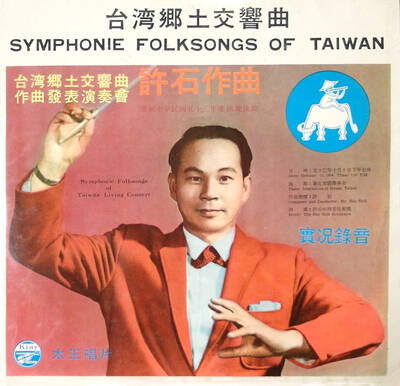Revelers across Asia who snort the animal tranquilizer ketamine for a hallucinogenic high may face incontinence and other health problems as the new dangers of this cheap party drug have started showing up in long-term studies.
Doctors in Hong Kong, where ketamine took off as a party drug about a decade ago, have recently found that heavy users have poor bladder control and are prone to long-term liver damage.
“The worst cases are in young people who have to empty their bladders every 15 minutes. They can’t even take a bus ride without alighting and going to the toilet,” said Ben Cheung, a psychiatrist who works with ketamine users.
“Their kidney functions are affected and they are so young. This is a serious health consequence that we never expected because it has never been seen anywhere else.”
Incontinence is not the only problem for these drug users, who sniff the powdery hallucinogenic that looks much like cocaine but costs 10 percent of the price.
A recent study in Hong Kong of 97 drug users, most of whom primarily took ketamine, found that over 60 percent of them suffered depression, 31 percent complained of poor concentration and 23 percent had memory problems.
“It shocked the users. Never did they think it would affect brain function and they care about that,” said Tatia Lee, who was a member of the team conducting the study.
Ketamine users usually mix the drug, synthesized in 1962 as a veterinary anesthetic, with other substances. To increase profits, dealers add powder from paint scraped off walls, chalk and crushed glass, which gives the same shimmer of good quality ketamine.
“It’s difficult to pin certain effects to a drug but ketamine is still the primary substance,” Cheung said.
Odorless, cheap and easy to consume, ketamine, which started out as a poor man’s cocaine, edged out heroin in Hong Kong around 2000 and then overtook marijuana.
Sources familiar with the trade say ketamine is widely manufactured in liquid form in China, and then brought into Hong Kong, where it can be easily converted into the powder form that is snorted by users.
Many young people in Hong Kong travel across the border to China to enjoy the party scene and a cheap supply of ketamine. While not physically addictive, users become psychologically dependent, expert say.
Last year, Hong Kong had an estimated 8,309 psychotropic drug users of which 5,042 used ketamine, according to one study. Methamphetamine, or ice, is in second place with 1,360 users.
Together with other drugs such as ice and ecstasy, ketamine was used in regional rave party circuits in the early years of the decade, turning up in places such as Taiwan, Bangkok, Singapore and Malaysia.
“It has [also] spread beyond Asia to places like Canada, particularly its ethnic Chinese community. Drug trend is like fashion, it is passed along by friends,” said Cheung.
Although raids by anti-drug agencies in Hong Kong in recent years have driven ketamine away from nightspots, its abundant supply and ease of use has led to ever younger people becoming abusers and the drug being consumed just about anywhere.
“Its use is rising and we have addicts as young as nine. Before, people used it in nightspots, now drugs are a part of their lives, they use it everyday, in their homes, in their office [toilets], everywhere,” said Sparkle Yu, a social worker with Caritas, a Catholic help group in Hong Kong.
“It is very easy to buy. They [pushers] can deliver them to the foot of your office building in 15 minutes.”
Yet, as with all drugs, the consequences are dire.
“The complications of psychotropic drugs are many. For ice and ecstasy, they are linked to cardiac, lung and breathing difficulties, brain damage,” said Peggy Chu, senior medical officer and urologist at Tuen Mun Hospital in Hong Kong.
“For ketamine, there is long term neurological and uterine complications, like having to go to the toilet every 15 minutes, bladder, kidney and liver problems. Colangitis, or inflammation of the bile duct, causes stomach pain and it could damage the liver in the long term.”

Last week the Chinese Nationalist Party (KMT) announced that the legislature would again amend the Act Governing the Allocation of Government Revenues and Expenditures (財政收支劃分法) to separate fiscal allocations for the three outlying counties of Penghu, Kinmen and Matsu from the 19 municipalities on Taiwan proper. The revisions to the act to redistribute the national tax revenues were passed in December last year. Prior to the new law, the central government received 75 percent of tax revenues, while the local governments took 25 percent. The revisions gave the central government 60 percent, and boosted the local government share to 40 percent,

Many will be surprised to discover that the electoral voting numbers in recent elections do not entirely line up with what the actual voting results show. Swing voters decide elections, but in recent elections, the results offer a different and surprisingly consistent message. And there is one overarching theme: a very democratic preference for balance. SOME CAVEATS Putting a number on the number of swing voters is surprisingly slippery. Because swing voters favor different parties depending on the type of election, it is hard to separate die-hard voters leaning towards one party or the other. Complicating matters is that some voters are

Sept 22 to Sept 28 Hsu Hsih (許石) never forgot the international student gathering he attended in Japan, where participants were asked to sing a folk song from their homeland. When it came to the Taiwanese students, they looked at each other, unable to recall a single tune. Taiwan doesn’t have folk songs, they said. Their classmates were incredulous: “How can that be? How can a place have no folk songs?” The experience deeply embarrassed Hsu, who was studying music. After returning to Taiwan in 1946, he set out to collect the island’s forgotten tunes, from Hoklo (Taiwanese) epics to operatic

Five years ago, on the verge of the first COVID lockdown, I wrote an article asking what seemed to be an extremely niche question: why do some people invert their controls when playing 3D games? A majority of players push down on the controller to make their onscreen character look down, and up to make them look up. But there is a sizable minority who do the opposite, controlling their avatars like a pilot controls a plane, pulling back to go up. For most modern games, this requires going into the settings and reconfiguring the default controls. Why do they